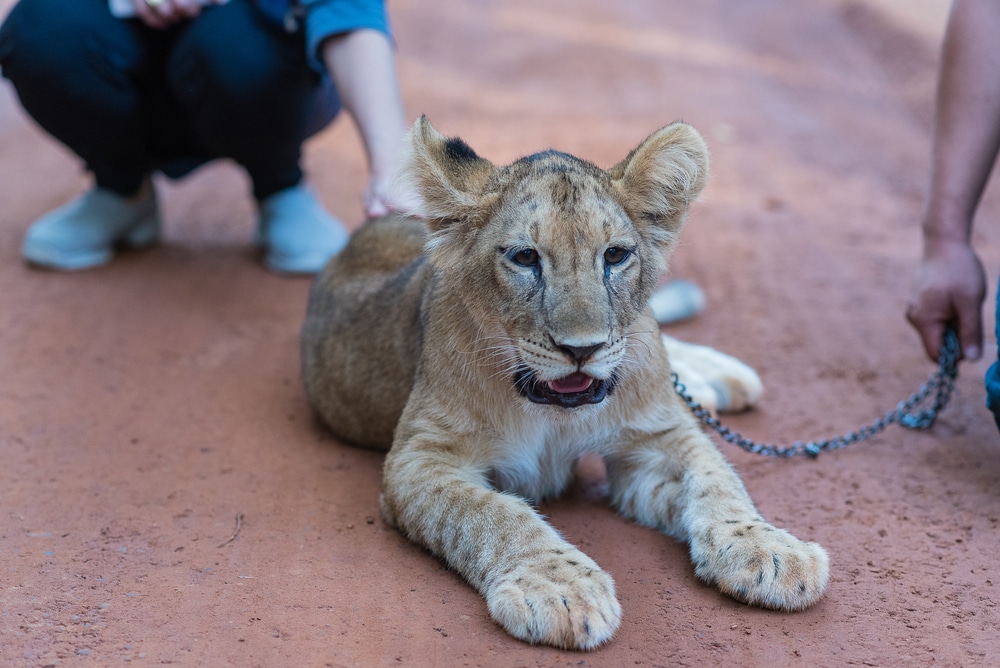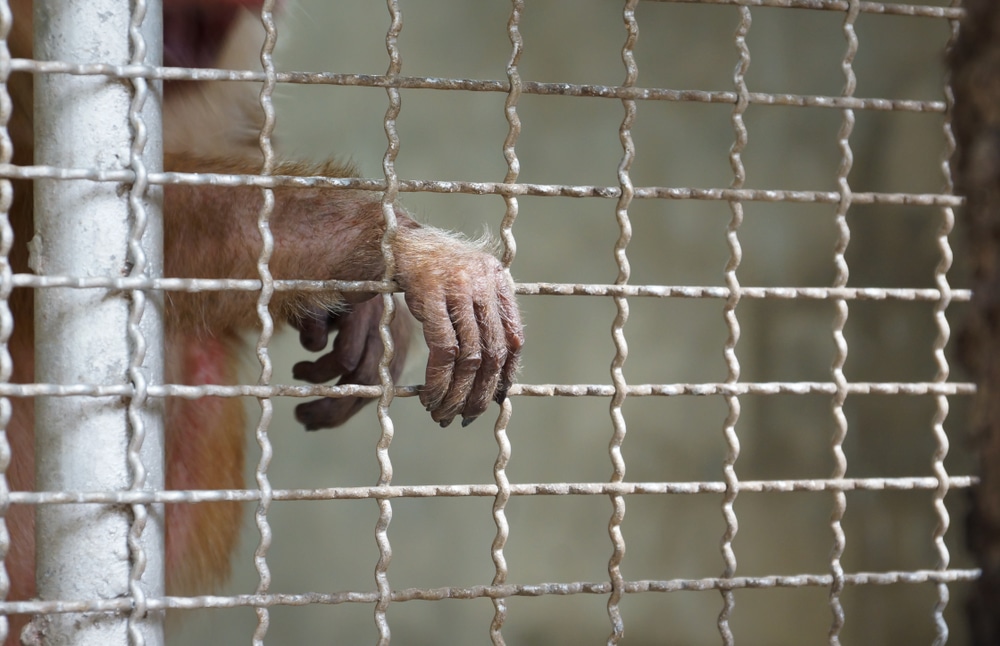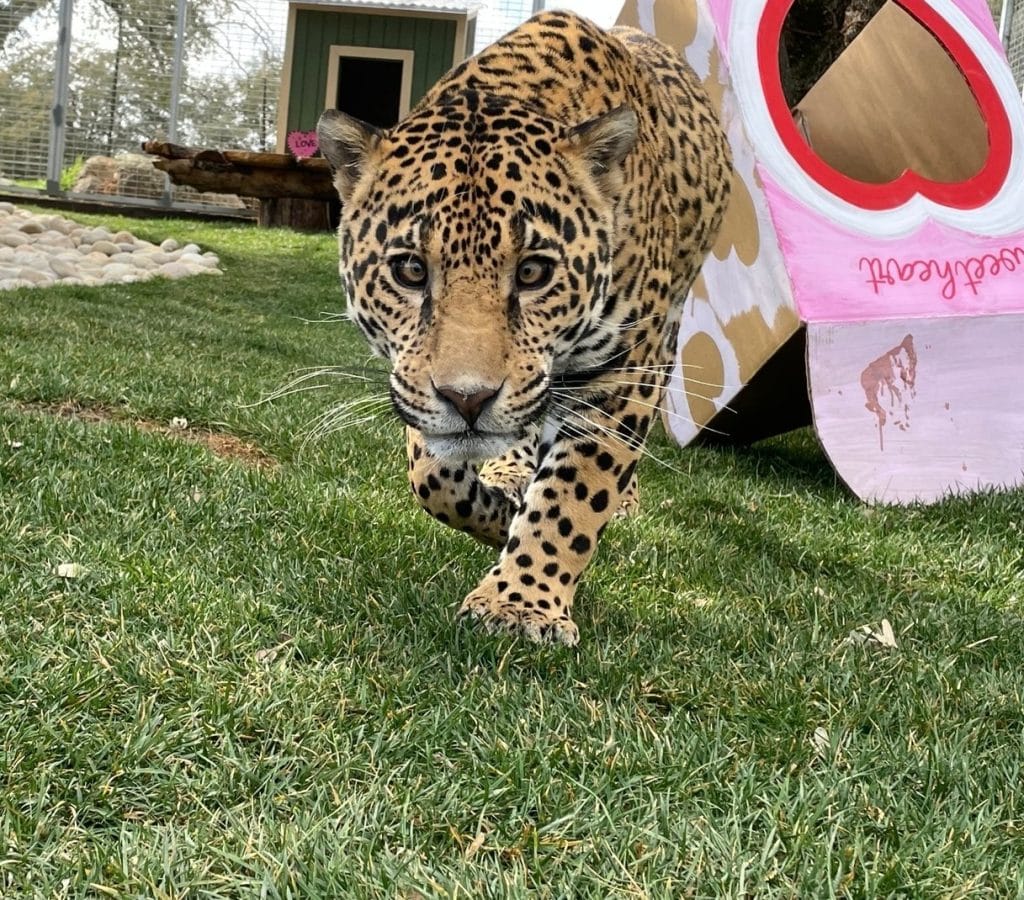

You’ve probably seen the viral videos—someone cuddling a tiger cub or posing with a “pet” bear. It’s cute, and maybe you’ve even thought, “Wow, I’d love to have an exotic animal like that.” But what we don’t see on social media are the challenges, dangers, and ethical issues tied to keeping wild animals as pets. Exotic animals like lions, bears, servals, etc., aren’t made for living rooms, basements, or the backyard—they need the freedom and complexity of their natural habitats to truly thrive.
There are many reasons why exotic animals shouldn’t be pets. Let’s explore some of these reasons here:
The needs of an exotic animal are far more complicated than a domestic animal. A wild animal is not like a dog or cat that’s adapted to live with humans. It has wild instincts and specific needs that go way beyond what any regular household can provide. It needs vast spaces, natural enrichment, specialized diets, mates, etc., found in their natural habitats.
Keeping exotic pets is expensive– medical care, food, habitat and other necessities are way more expensive than you might have expected. Many private owners quickly realize they’re over their heads and either abandon, kill, or neglect the animals..
The demand for exotic pets is not just an unfortunate trend—it’s part of a larger issue that threatens wildlife populations. Many animals are taken from the wild or bred in captivity under poor conditions to supply the exotic pet market. This illegal wildlife trade directly impacts endangered species, pulling animals from their natural environments where they’re needed for healthy populations. Every animal bought or sold as a pet fuels wildlife trafficking and threatens wild populations.
Captive animals live a life of suffering. Many are separated from their mothers at birth, causing lasting emotional trauma. They’re kept in cramped, unnatural conditions and may be passed from one owner to another, each less equipped to care for them than the last. If animals are no longer profitable or become too hard to manage, they’re often abandoned, neglected, or even euthanized. Life in the pet trade is one of constant instability and suffering for these animals.
Even when wild animals find a “permanent” home, captivity is not kind to them. Homes and private facilities simply can’t provide the necessary conditions to keep them healthy and happy. Exotic animals need stimulation, space, and the chance to express natural behaviors like hunting, roaming, and socializing. When they can’t, they become frustrated and stressed, which can lead to behaviors like pacing, aggression, or self-harm.

Wild animals have instincts and behaviors that make them unpredictable, no matter how tame they might seem. Lions, bears, and other exotic animals are hardwired to act on these instincts, which mean they can be a danger to humans. Expert handlers at accredited sanctuaries know the risks and follow strict protocol when working with exotic animals. A no touch policy with safe habitat structures and procedures is an utmost priority. Bringing these animals into a home environment puts both the animals and people at risk.
Exotic animals can carry diseases that spread to humans. These diseases, known as zoonotic diseases, can be dangerous and even deadly. Animals like monkeys, reptiles, and big cats can carry bacteria and viruses humans aren’t used to encountering, putting owners and the public at risk. For this very reason, the Centers for Disease Control and Prevention (CDC) warns against keeping exotic animals as pets.
First, skip sharing the “cute” side of exotic pets on social media. It’s tempting to repost a video of a tiger cuddling on a couch, but these posts often hide the reality of the animals suffering in captivity. They make it look fun and harmless to own wild animals, but what you don’t see are the animals’ real struggles.
And here’s a big one: never buy exotic pets for sale. Wild animals have complex needs and should stay in the wild or, if they’re already in captivity, in accredited sanctuaries. Buying an exotic pet only fuels the demand for the trade, which continues to harm animal welfare globally.
In the US, the United States law is catching up, with stricter regulations against owning certain wild animals as pets, but there’s still work to do. You can make a difference by supporting laws that protect these animals and raising awareness about what’s going on. When we stand up for animal welfare, we help ensure that wild animals are treated as they deserve, not kept as pets or exploited.

Eddie’s story is a great example of why you should never support the exotic pet trade. He was bred in captivity by wildlife traffickers who took him from place to place, using him as a prop for photo ops in hotel rooms. Eventually, Eddie was abandoned at the gates of our sanctuary. He’s one of the many victims of the exotic animal trade.
Responsible pet ownership means choosing pets meant to live in our homes—like dogs and cats. Wild animals, on the other hand, belong in the wild or in accredited sanctuaries where they can receive the care they truly need.At Lions Tigers & Bears, we’ve dedicated our sanctuary to rescuing abandoned, abused, and neglected animals who’ve fallen victim to the exotic pet trade. But we can’t do this alone. We need your help to continue providing lifetime care these animals deserve and to help stop the harmful wildlife pet trade for good.

Ph: 619.659.8078
Fx: 619.659.8841
[email protected]
24402 Martin Way, Alpine, CA 91901